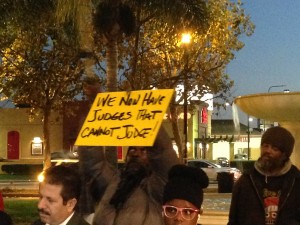The days since the election have brought with them a torrent of self-criticism from the left, from the not so left, and from the never-was-left wings of the Democratic Party. Everybody accusing everybody else of the loss. The white working class was not given its due. There was too much attention paid to identity politics. Not enough attention was given to foreign policy concerns, or any concerns other than Trump’s vulgarity and panoply of hatreds. And on and on. In my humble opinion all of that is perhaps necessary venting but, ultimately, just so much noise.
The election posed a choice between two visions of what America is and/or could be. On the one hand was the claim that the more perfect union, which is presented as the very reason for the Constitution, is achieved by increasing and expanding the community of those who would receive the Blessings of Liberty, and be of those that the promotion of the general Welfare would impact. On this claim Justice is open to be claimed by all who reside in this country; domestic tranquility is a right of all; and the people who are being commonly defended are of every race, religion, ethnicity, sexual orientation, immigration status, and ability. On this side of the argument, in broad terms, achieving our country means welcoming the stranger, caring for the resident, understanding that “citizens” are individuals who treat one another as bearers of the relevant kind of responsibility (as Jeffrey Stout has argued), and not only those who bear the relevant documents. Continue reading


